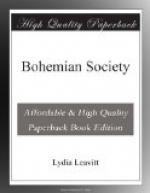The Poet says:
So many abler tongues and pens than mine have chosen the St. Lawrence as a theme on which they have written love songs, romances and legends, that it would ill-become me to even attempt the subject. A writer, many years ago, while paddling up the river and among the Islands, expressed himself thus: “As the sun set below the islands the full moon rose in all her beauty. The light evening breeze had subsided into a calm; not a breath of air ruffled the glassy waters.
Impressed with the solemnity of the scene, I could not refrain from wishing that here, at least, Nature might be permitted to reign unmolested, but the solitary watch-fires of the recent settlers gave proof that though his tenure was yet but frail, man! rapacious and indefatigable man! was fast establishing usurpation.” This was written many years ago. What would be the astonishment of the writer, if he could revisit the scene. Would he think it improvement or desecration? On the islands cottages are built, and well kept lawns, sloping down to the water, are brightened by the bright dresses of women and children, and in some places the modern game of lawn tennis is being played, and everything shows that Nature has not been allowed to reign unmolested. Steamboats are plying from place to place; pleasure seekers lift their voices to hear the sounds re-echoed from island to island, from shore to shore, until the faint reverberation is lost among the murmuring pines. Surely the crags and trees, the pines and poplars, are tempted to return the echo as a protest against this invasion. If the sensibilities were quickened to the sounds of nature, the words re-echoed would be “leave us alone in our solitude.”
The St. Lawrence does not speak to our hearts of deep tragedies, but breathes into the soul a spirit of love.
“When Eve plucked death from the tree of life and brought tears of sorrow upon earth, Adam was driven out into the world to mourn with her, and taste from the bitter spring that we drink to-day.”
“Then angels on their wings, bore the silent Eden to the eternal spheres on high, and placed it in the heavens—but in passing through space, they dropped along the way, to mark their course, some flowers from the garden divine. These flowers of changing hues, falling into the great river, became the Thousand Isles—the Paradise of the St. Lawrence.”




